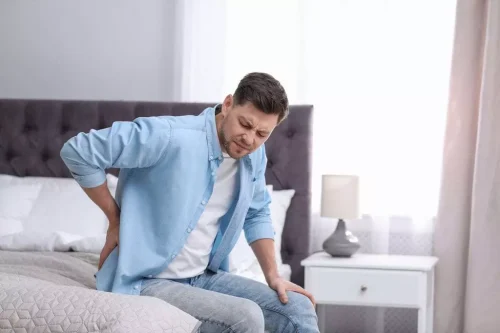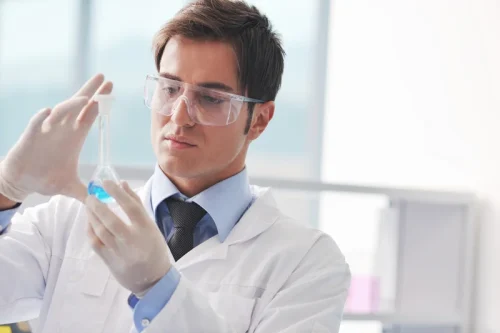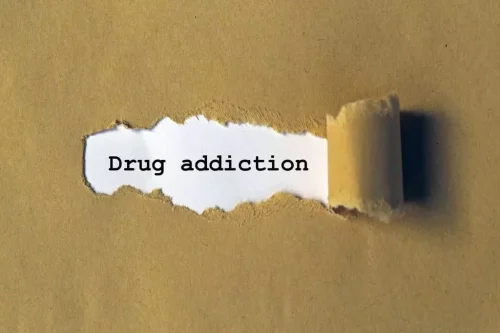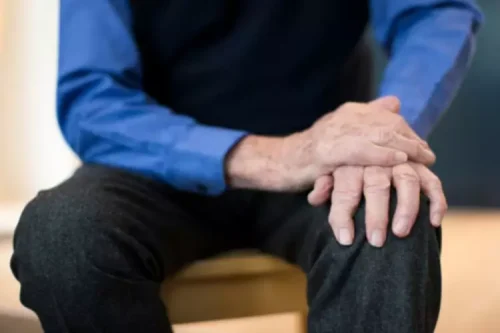
Dr. Elizabeth Bulat is the medical director of addiction medicine at Henry Ford’s Maplegrove Center in West Bloomfield. Drink long enough — or hard enough — and you’re probably familiar with the dreadful feeling https://ecosoberhouse.com/ that comes the morning after a night of over-imbibing. Maybe you try to replay the evening’s conversations in your mind or scroll through text messages to make sure you didn’t send something you regret.
How to Manage Anxiety Symptoms After Quitting Drinking Alcohol
If you find yourself reaching for a drink when you’re stressed or anxious, consider reading this. People can speak with a healthcare professional for help managing anxiety or mood disorder symptoms. Drinking alcohol can have serious consequences if you’re being treated for anxiety. Having a drink might seem like a good way to ease anxiety, but you may be doing more harm than good. Chemical dependency specialist Joseph Janesz, PhD, LICDC, says there are various ways that anxiety and alcohol are linked, so it’s important to understand how alcohol affects not only your body, but also your mind. Pain that has an obvious cause, like an injury or accident, will be diagnosed based on the patient’s verbal history, examination, and any necessary imaging.
Better ways to treat and manage panic attacks

About 20 percent of people with social anxiety disorder also suffer from alcohol dependence. Treating anxiety symptoms — including chest pain — effectively often requires a multifaceted approach that addresses both the psychological and physical aspects of the condition. A common strategy involves therapy, particularly cognitive-behavioral therapy, which helps individuals identify and modify negative thought patterns. Medications also play a crucial role, with selective serotonin reuptake inhibitors (SSRIs) frequently prescribed for long-term management and benzodiazepines used for short-term relief.

How Alcohol Affects Anxiety Disorders
The symptoms of a hangover, such as nausea and vomiting, dizziness, dehydration, and low blood sugar, can make it hard to function. If someone is sick because of a hangover, they might not be able to attend to their responsibilities at home, school, or work—which can, in turn, fuel their does alcohol cause anxiety attacks anxiety. When someone first has a drink of alcohol, it often has a sedative effect. People need to speak with a doctor if they are experiencing the above effects due to alcohol. However, you can make lifestyle changes to help you reduce your anxiety as well as learn to cope with it.

It’s safer to make gradual, small reductions (not sudden large changes).We have advice on how to take a break from alcohol, but if you’re worried you are dependent on alcohol talk to your GP surgery or contact an alcohol support service. The more you drink the greater your tolerance for alcohol – meaning you need to drink more alcohol to get the same feeling. If you rely on alcohol to mask anxiety, you may find you become reliant on it to relax – putting you at risk of alcohol dependence. If drinking gives you the sensation of temporary anxiety relief, you may be inclined to drink more often, to cope with uncomfortable circumstances.
Alcohol and anxiety: Panic attacks after drinking
- This is possibly because of the effects of alcohol abuse, which can actually change brain activity.
- It occurs from joint overuse or injury and tends to happen in the knee or elbow.
- This is a combination of the Cholesky decomposition and the correlated factors model (Torvik et al., 2017).
- In order to find out which medications might be appropriate, they need to conduct a full evaluation.
We tested the presence of direct influences by replacing separate genetic and environmental associations (e.g. a41, c41, e41) with direct paths (e.g. b41), as shown in the right panel of Figure 1. This model is simpler and fits well when direct effects explain the relationship between variables. It is important to note that a better fit of the more complex model does not preclude all types of causal effects, only phenotypic causation.
Why Do I Get Super Anxious the Day After Drinking?
The whole idea behind self-medicating is using alcohol, drugs, supplements, or other substances as ‘home remedies’ to handle health problems. While this approach can relieve some symptoms, these aren’t doctor-recommended or prescribed methods. In many cases, self-medicating leads to other problems, including worsening symptoms and substance use problems. The review authors reported that reducing alcohol intake could improve a person’s self-confidence, physical and mental quality of life, and social functioning. According to a 2017 review of 63 studies, reducing alcohol intake led to improvements in both depression and anxiety. Researchers in a 2017 study measured anxiety clinically and found that anxiety levels were higher in those with AUD than those without when they faced stress.
Similarly, in a study by Kammeier and colleagues,1 there was little evidence that preexisting psychiatric symptoms measured by a standard personality test predicted later alcoholism. Also, an 18-year followup of 80 children who had experienced severe depressive episodes earlier in life revealed no evidence of an increased risk for alcoholism during the followup period (Harrington et al. 1990). Finally, Schuckit’s research group followed 239 alcoholic men 1 year after they received alcoholism treatment, and the data revealed no significantly increased rates of major depressive or anxiety disorders (Schuckit and Hesselbrock 1994). It is possible, however, that some of these studies might have excluded subjects with more severe anxiety or depressive disorders from the original samples, and consequently more work in this area is required (Kushner 1996). As recently reviewed in the literature, some interesting data also support a possible relationship between longstanding anxiety or depressive disorders and alcoholism (Kushner et al. 1990; Kushner 1996). The most consistent results relate to manic episodes, wherein manic-depressive patients show a small but significant increased risk for alcoholism (Winokur et al. 1993).
Occasionally, Dr. Lin may recommend that additional therapy is needed and ask that you bring a therapist into your care team in order to provide the best outcome. A 2013 study by the University of Buffalo Department of Psychology found that college students who drink to deal with anxiety may experience more negative alcohol-related problems, such as lower grades or missing class, than do students who use alcohol for other reasons. Drinkaware UK provides some useful online tools to help you to reduce your alcohol intake. It is also recommended that you consult your GP if you are concerned that you have a drinking problem. The fact that all these physiological changes can cause symptoms so similar to those of a panic attack can trick your brain into having a real one.
- Try relaxation techniques like deep breathing, meditation, yoga, or tai chi.
- We tend to pair up our vices, and not only drink alcohol but also eat highly dense, problematic foods.
- If you or someone you know may be in danger, call 911 or the National Suicide and Crisis Lifeline at 988 right away.
- We then described the longitudinal relationship between the SAD, AnxIRT, and AUD at the two time points with a structural equation model (SEM) for ordinal data (liability-threshold model).
Social embarrassment
- Alcohol is a mild anesthesia and will put you in the mood for sleep — at least initially.
- This type of self-medication can lead to alcohol dependency and may result in regular, alcohol-induced panic attacks.
- When depressed or anxious alcohol-dependent people are asked their opinions about cause and effect, they often reply that they believe they drink in order to cope with their symptoms of sadness or nervousness.
People with alcohol addiction who suddenly stop drinking can experience alcohol withdrawal symptoms, such as sweating, nausea and seizures. This causes people to feel anxious or depressed the day after heavy drinking. If you have anxiety and are using alcohol to cope, it’s important that you seek support from your doctor or mental health professional. It’s never too late (or too soon) to reach out for help if you are trying to cope with a mental health condition or substance use disorder.

